October 7th, 2008 by Ajuan Mance
I combed the editorial pages of America’s HBCUs to get a sense of what students at the historically Black campuses are saying about the current presidential campaigns. Here’s a sampling of what I found:
When I see Obama, I don’t simply see a black man – I see a man of change. I see a man who will provide everyone with health care rather than succumb to the ills of society. I see a man who will cut taxes and enable people to spend their money on whatever they deem necessary. I see a man who will free the soldiers who have been subject to rampant killings and relieve them from this ongoing agony.
—Carl Lamarre, in Howard University’s The Hilltop
***
During the debate [moderator Gwen] Ifill was unbiased. Ifill did her job and asked fair, unbiased questions. The debate seemed very confusing. Both candidates seemed to make “plugs” for their presidential candidate rather than answer questions. But when they did answer questions Palin did not come across as knowledgeable as Biden.
The media’s accusations that Ifill would be biased were unwarranted. A moderator cannot form the words pouring from a candidate’s mouth. During a debate a question is asked and the candidate has to respond. Palin and Biden could only say what was on their mind. In the end the candidate with the most knowledge still shined.
—Earlena Boswell, in Florida A&M University’s The Famuan
***
[C]ollege students are the future leaders of America. Their votes will matter the most, especially in this election.
—Latasha Edwards, in Flordia A&M University’s The Famuan
***
Throughout the [first] debate, Obama repeatedly found himself on the defensive, responding to attacks from McCain on his opposition to the Iraq surge, his willingness to meet with foreign leaders such as the president of Iran, and his alleged support for congressional earmarks. Obama also did something he may find himself regretting later-he often started his responses by saying “John is right” or “I agree with John.” The McCain campaign has already edited together a YouTube video of those com-plimentary Obama remarks.
—Edward Mitchell, Black College Wire
***
My first thought was ‘Oh no, why does Michelle Obama have to have an Afro?’ But taking a closer look I couldn’t help but laugh because it is all so unbelievable. In my opinion “The New Yorker” has done its job.
Although most of the things on the cover are a far cry from being true, there are a few things to take note of. Michelle Obama with a bushy Afro and the fist pound. I for one would love to see the future First Lady working a natural hair style; I think it suits her. I’m hoping she’ll see the cover and notice how well it frames her animated caricature.
–Howard University Student Eboni Farmer on the infamous New Yorker cover drawing of the Obamas, for Black College Wire
***
This blog is part of the Afrosphere Action Coalition’s Proud Black Voter Campaign.
Click on the image below to find voter registration information for your state.
Deadlines vary by state.

Register To Vote
Get This Badge
Posted by Ajuan Mance
Posted in African American Students, Barack Obama, Black Colleges, Black Students, Current Events, Higher Education, John McCain, race | Comments Off on Black College Journalists on the Presidential Campaign
October 6th, 2008 by Ajuan Mance
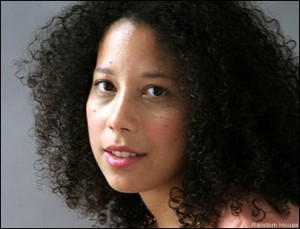
Cora Daniels
At [my husband’s predominantly white] prep school the students did not wear caps and gowns at graduation. Not at graduation from elementary school, not at junior high (or middle school in prep lingo), and not at their high school graduation, either. Instead they were required to wear dress shirts, ties, and jackets just as they did every day to class. The thinking was that the first time students should wear caps and gowns was the moment they graduated from college. And the expectation was that everyone at his prep school would certainly see that moment. These are expectations at their highest. I donned my first cap and gown when I “graduated” from Head Start.
–Cora Daniels in Ghetto Nation: Dispatches from America’s Culture War
***
This quote speaks to that subtle and insidious lowering of expectations that occurs when parents, teachers, and other authority figures reward young people for completing tasks or taking on responsibilities that would, in other contexts be considered minimally acceptable or commonplace. You can see it when, for example, a mother praises her son for “taking care of his responsibilities” (parenting his children); when a father or supports his claim that his daughter is a “good kid” because she is “in school, doesn’t use drugs, and has never been arrested”; or, in the type of scene that the author describes, in which children are clad in the child’s version of academic regalia and celebrated for completing kindergarten, grammar school, or middle school. Such behavior from adults communicates to young people that they are only capable of these types of minimally acceptable outcomes; if the adults in their midst expect so little from them, then they will quite likely expect even less from themselves.
Is this a possible explanation for African American students’ tendency to perform less well at the college level than non-Black counterparts with similar class and family backgrounds? Could it be that since getting accepted to college already surpasses most Americans’ understanding of what U.S. Black people are capable of achieving, distinguishing oneself academically once on campus feels either out of reach or unnecessary for an African American student who has already achieved more than anyone might expect of him/her simply by meeting minimal requirements for remaining enrolled?
***
Biographical Notes: Cora Daniels is an award-winning journalist whose work has appeared in Fortune, the New York Times, Essence, O: The Oprah Magazine, USA Today, Heart & Soul, FSB: Fortune Small Business, and Savoy. She is a native New Yorker who was born and raised in Brooklyn. She holds a B.A. from Yale University (history) and a master’s degree from the Columbia University School of Journalism. Her first book, Black Power Inc., appeared in 2004. Cora Daniels lives in Brooklyn with her husband and daughter.
Posted by Ajuan Mance
Posted in Achivement Gap, African American Students, Black Students, Cora Daniels, Current Events, Ghetto Nation, Higher Education, race | 2 Comments »
October 6th, 2008 by Ajuan Mance

The University of Colorado is roughly 91% white, and if voters pass this November’s anti-affirmative action ballot measure, then Colorado residents can expect to see the proportion of white students on campus increase, maybe dramatically.
Many both on and off campus would prefer to see more diversity in Colorado’s public colleges and universities, not less. While the Colorado Board of Regents has remained largely silent on the measure, State Governor Bill Ritter has been one of its most vocal and highest ranking opponents.
As in Nebraska, Colorado’s ballot measure threatens to decrease an already small student of color population in its colleges and universities. Both ballot measures are part of controversial anti-affirmative action activist Ward Connerly’s attempt to dismantle the practice, state by state. Measures proposed in Oklahoma and Arizona failed to qualify for the ballot.
Denver’s CBS 4 describes Connerly’s state-by-state campaign to end the what he considers preferential treatment for people of color:
Connerly, a 69-year-old grandfather who can be mild and charming or harsh and defensive, is convinced that his mission of dismantling preferences is altering the course of history.
Affirmative action has become entrenched in American life and state by state, Connerly said in a recent interview with The Associated Press, and “we’re changing that.”
“If I thought it could be done — poof — flash of the wand, I’d be naive,” Connerly said.
Affirmative action, he said, is an antiquated system that, rather than helping minorities, reinforces the perception they are second-class citizens who need help to succeed.
Connerly’s proposed constitutional amendments prohibit state and local governments from giving preferential treatment to people on the basis of race, sex, ethnicity or national origin.
His fight against preferences started in the 1990s after a couple came to him when he was a regent at the University of California to talk about their white son’s failure to get into the system’s medical schools.
On election day, Coloradans will have their say on this hot-button issue. I hope they choose to put their trust in college admissions officials to make the best and fairest decisions for all concerned.
Have your say on the issues in your state. Click on the image below to register to vote.
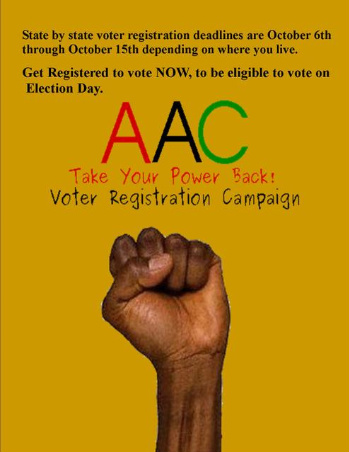
Posted by Ajuan Mance
Posted in Affirmative Action, African American Students, African Americans, Current Events, Higher Education, race, University of Colorado, Ward Connerly | Comments Off on Affirmative Action on the Ballot in Colorado
October 3rd, 2008 by Ajuan Mance

Can diversity survive off the court?
***
Nebraska will soon vote on a ballot initiative that would ban race-based affirmative action in the awarding of state contracts, employment and admission to Nebraska’s public colleges and universities.
The voters are apparently deadlocked over the initiative. In a state whose population is 91.8% white and whose public university system is more than 85% white, half of the voters apparently believe that their public universities and colleges are, at this point, too diverse.
Maybe if they got rid of their football team(s)…
Posted by Ajuan Mance
Posted in Affirmative Action, African Americans, Current Events, Higher Education, race, University of Nebraska | 2 Comments »
October 3rd, 2008 by Ajuan Mance
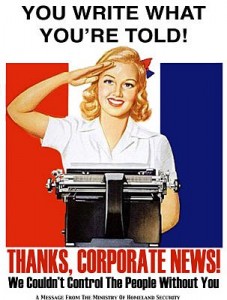
In a September 17, 2008 press release, the Green Party confirmed a phenomenon that I had begun to notice during the last several weeks. Actually, phenomenon might not be the right word. The Green Party release, titled “Refusal by Media, Democratic and Republican Cadidates to Address Election Integrity Raises Danger of Another Stolen Election in 2008,” is really addressing the absence of a phenomenon, the absence of any treatment anywhere in the national media of GOP efforts to infringe on the voting rights of student and minority populations in key swing states.
Although it is decidedly partisan, the Green Party press release nevertheless highlights the very troubling failure of major news outlets to expose and investigate GOP efforts to intimidate or otherwise disenfranchise students, ex-felons, and citizens who have experienced recent foreclosures:
‘Democratic politicians, including Barack Obama, are as unwilling as Republicans to discuss the threat of another stolen election, even though such irregularities cost them the last two presidential races,’ said David Cobb. ‘The major media are also ignoring the topic, despite overwhelming evidence, including the Conyers Commission’s findings, the conviction of two Republican election officials in Cuyahoga County, Ohio, for their role in tampering with the 2004 recount, and a 2007 Ohio study finding ‘critical security failures’ pervaded the state’s election system in 2004.’
If you are concerned about voter intimidation and/or disenfranchisement in your area, I encourage you to contact your local congressional representatives, senators, and state political officials (Governor, Lt. Governor, and others). Spread the word among your friends and encourage them to write your local representatives, as well. Click HERE to locate the contact information for your congressional representative.
And, of course, be sure to register and vote. One of the reasons that election tampering has been so effective in our last two elections is that the number of votes that separated the two major party candidates was so small that the manipulation of the vote in a just a few key precincts was enough to insure one party’s success and the other’s loss.
The greater the number of votes the greater the likelihood of a wider and more decisive margin of victory, even in swing states; and wider margins are more difficult to manipulate.
For information on how and where to register to vote, click on the image below:

Posted by Ajuan Mance
Posted in African Americans, Current Events, Election Fraud, GOP, race, Student Voters, Voter Registration, Voting Rights | Comments Off on Media Ignores Attempts to Disenfranchise Students and Others
October 2nd, 2008 by Ajuan Mance
District, the independent news weekly published by students at the Savannah College of Art and Design, reports that a number of websites have been created to help students see through the misleading information that GOP election officials have disseminated about their voting rights.
With few exceptions, students may choose to register in one of two places, either in the district where their parents live or in the district where their on- or off-campus residence is located. With the exception of a small number of students whose scholarships stipulate where the recipient must claim legal residency, college voters can choose either their campus/off-campus residence or their parents’ residence without endangering their financial aid status.
District weekly describes two of the sites that have recently been created to help students understand the regulations of their community/state/precinct:
The Brennan Center for Justice at the New York University School of Law established such a Web site. It displays a map of the United States and allows students to choose whether or not they would like to vote from home or from their school. It then displays the appropriate
registration guidelines.
Other sites have gone further. CountMore.org, a non-partisan website established last month allows students to choose the state their school is located in and their home state. It then uses an algorithm to sift through data from current polls and the 2004 election to determine where their vote would most likely count more. As it stands now, according to their Web site, the swing states that matter most are Ohio and Colorado. Followed by Virginia, Pennsylvania, Florida, Nevada, and Michigan. Therefore, if you select Georgia as your school state, and Colorado as your home state the site tells you the margin of victory in the 2004 election was 16.71 percent in Georgia, versus 4.73 percent in Colorado.
CountMore.org then provides a link to register to vote in Colorado. Their website also has a note saying, “The small number of students with scholarships or tuition that require residency should check with their financial aid office before registering to vote in their home state.” Not all scholarships require residency, and in fact this is where controversy most often starts.
The Brennan Center has detailed information on how registering to vote may affect residency status of the minority of students whose tuition or scholarships stipulate where they can be a resident.
If you or a student you know need information on how and where to register, please access the information on either or both of these sites. Once again, they are:
If you simply need information on how and where to register, the Student’s Guide to Voting includes a state-by-state list of links to the relevant local offices. Scroll down and you will find the list and the links for your state.
Or, you can click on the image below to reach the Proud Black Voter initiative’s state-by-state voter information. Remember, the deadline for registration is rapidly approaching.

Posted by Ajuan Mance
Posted in Current Events, Higher Education, Student Voters, Voter Registration, Voting Rights | Comments Off on Websites Take Steps to Ensure Students’ Voting Rights
October 2nd, 2008 by Ajuan Mance
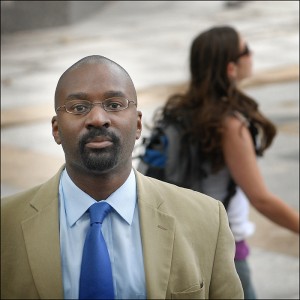
Professor John L. Jackson
The difference, say, between Don Imus and an even racier shock jock like Howard Stern pivots on how the latter talks almost obsessively about race. Even if you don’t believe he’s an equal-opportunity misanthrope, you could never listen to Stern’s broadcast and think he’s hiding (for better or worse) his ultimate feelings about race. He seems to put it all on the air. You might find his comments sexist and racist; he might make your blood boil; but you don’t feel like he’s hiding something. It is that fear of the hidden vis-à-vis race and racism that racial paranoia breeds upon, a fear that is related, but not reducible, to fears about racism, per se. It is about not knowing, not being sure. We don’t want everyone to try to be Howard Stern, but his comedy (at its best) promotes a kind of multiracial gesture toward honesty that hinges on his ability to say things that others are afraid to say. It unflinchingly demands a certain commitment to seeing race, even if it is a way of seeing race that is all the more frightening for its easy deployment of traditional racial stereotypes.
–John L. Jackson, Jr. in Racial Paranoia: The Unintended Consequences of Political Correctness (212)
***
Biographical Notes: John L. Jackson, Jr. is the Richard Perry University Associate Professor of Communication and Anthropology at the University of Pennsylvania’s Annenberg School for Communication. He holds a Ph.D. in Cultural Anthropology from Columbia University. He graduated from Howard University summa cum laude with a B.A. in communications in 1993. Prior to joining the faculty at the Annenberg School, Jackson was an associate professor in Duke’s Department of Cultural Anthropology. Before that he was a Junior Fellow in the Society of Fellows at Harvard University.
Jackson is the author of three books. They are: Racial Paranoia: The Unintended Consequences of Political Correctness; Real Black: Adventures in Racial Sincerity; and Harlemworld: Doing Race and Class in Contemporary Black America. He has also produced several award-winning films and documentaries.
Dr. John L. Jackson, Jr. was born in Brooklyn, NY. He blogs at Brainstorm: Lives of the Mind on The Chronicle of Higher Education website.
Posted by Ajuan Mance
Posted in African Americans, Annenberg School, Current Events, Higher Education, John L. Jackson, Jr., race, Uncategorized | Comments Off on The Quotable Black Scholar: John L. Jackson, Jr.
September 30th, 2008 by Ajuan Mance

1887
(Photo Source: W.E.B. DuBois Library, U Mass Amherst)
Posted by Ajuan Mance
Posted in Academia, African Americans, Black History, Black Students, race, W.E.B. DuBois | 10 Comments »
September 30th, 2008 by Ajuan Mance
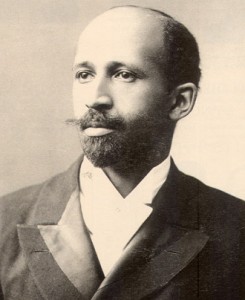
W.E.B. DuBois (1868 – 1963)
If you tonight suddenly should become full-fledged Americans; if your color faded, or the color line here in Chicago was miraculously forgotten; suppose, too, you became at the same time rich and powerful; — what is it that you would want? What would you immediately seek? Would you buy the most powerful of motor cars and outrace Cook County? Would you buy the most elaborate estate on the North Shore? Would you be a Rotarian or a Lion or a What-not of the very last degree? Would you wear the most striking clothes, give the richest dinners, and buy the longest press notices?
Even as you visualize such ideals you know in your heart that these are not the things you really want. You realize this sooner than the average white American because, pushed aside as we have been in America, there has come to us not only a certain distaste for the tawdry and flamboyant but a vision of what the world could be if it were really a beautiful world; if we had the true spirit; if we had the Seeing Eye, the Cunning Hand, the Feeling Heart; if we had, to be sure, not perfect happiness, but plenty of good hard work, the inevitable suffering that comes with life; sacrifice and waiting, all that — but, nevertheless, lived in a world where men know, where men create, where they realize themselves and where they enjoy life. It is that sort of world we want to create for ourselves and for all America.
from “Criteria of Negro Art,” a speech given at the Chicago Conference for the NAACP (1926).
***
The most thought-provoking line in this entire passage is, “Even as you visualize such ideals you know in your heart that these are not the things you really want.” It bespeaks a idealism and even an innocence, both of which I find endearing, especially coming from an intellectual and political powerhouse like DuBois, whose words and actions inspired generations of anti-racist activists. The notion that, in our heart of hearts, Black folks want nothing more than the contentment and humble pleasures of a life lived simply just hasn’t borne itself out.
Having vanquished Jim Crow as well as most legal constraints on Black progress, African Americans seem no less enamored with material wealth. Granted, racism is still very much alive; but even within the vast and expanding Black middle class, the appeal of “living large” seems in no danger of fading.
The reasons for this are many, and a recent study conducted by Wharton and U Chicago researchers indicates that it is based in the desire of African Americans to be perceived as affluent by the people around them. This desire to look rich, however, has very real and very negative consequences on Black families’ efforts and abilities to move beyond appearances and take steps toward real, true prosperity and financial independence.
I’ll be blogging on the fascinating research finds of three Wharton and U Chicago researchers who set out to determine whether or not Black people and Latinos really did spend more money on “bling” and other accoutrements.
Stay tuned!
Posted by Ajuan Mance
Posted in African American Students, African Americans, Alicia Jillian Hardy, Black History, Black Professors, race, Racism on Campus, Uncategorized, W.E.B. DuBois | 6 Comments »
September 30th, 2008 by Ajuan Mance

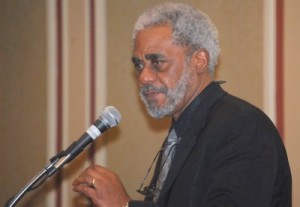
Charles Johnson (b. 1948) at the 2008 conference of the College Language Association
(Source: Aldon Lynn Nielsen at Heat String Theory)
If the NAACP is struggling these days to recruit members of the younger generation and to redefine its mission in the 21st century — and it is struggling to do that — I think it is a good sign that the organization Du Bois led for so long is now a casualty of its own successes in the 1960s.
–from “The End of the Black American Narrative” (The American Scholar 77 no3 32-42 Summ 2008)
***
Biographical Profile: Currently the Pollock Professor for Excellence in English at the University of Washington, Charles Johnson is best known as the author of the National Book Award winning novel Middle Passage (1990). To hear Johnson read aloud from Middle Passage click THIS LINK (many thanks to Heat String Theory for making this audio available online). Johnson is also the author of three additional novels, Faith and the Good Thing, Oxherding Tale, and Dreamer.
In addition, he is the author or co-author of several other scholarly and creative works, including: two collections of short stories, The Sorcerer’s Apprentice and Soulcatcher and Other Stories; three scholarly and historical texts, Black Men Speaking, Africans in America: America’s Journey through Slavery (with a co-editor), and King: The Photobiography of Martin Luther King, Jr. (with a co-author).
Johnson is also a artist and humorist, and has published two collections of his cartoons: Black Humor and Half-Past Nation Time. He has published over 1000 of his drawings in national magazines and other publications, and he has published over 50 book reviews. Johnson has also penned a number of screenplays, several of which have been produced for public television.
Johnson’s website describes the range of awards and honors he has received:
Johnson, a Ph.D. in Philosophy, l998 MacArthur fellow and 2002 recipient of an American Academy of Arts and Letters Award for Literature, received the 1990 National Book Award for Middle Passage (he was the first African-American male to win this prize since Ralph Ellison in 1953). Oxherding Tale was awarded the 1983 Washington State Govenor’s Award for Literature; Sorcerer’s Apprentice was one of five finalists for the 1987 PEN/Faulkner Award, and Being and Race won a 1989 Govenor’s Award for Literature. His short fiction is included in the O’Henry Prize Stories (1993), Best American Short Stories (1992), Best American Short Stories of the Eighties, and he was named in a survey conducted by the University of Southern California to be one of the ten best short story writers in America; and his short fiction and essays are much anthologized. On May 24, 2000 he received the “Lifetime Achievement in the Arts Award” from the Corporate Council for the Arts (former recipients include artists Jacob Lawrence and George Tsutakawa). On July 27, 2001 he received the Pacific Northwest Writers Association’s 2001 Achievement Award “for distinguished professional achievement and for enhancing the stature of Northwest literature,” and on March 27, 2003 he received one of the first Distinguished Alumni Awards from Evanston Township High School. The spring issue of Washington Law and Politics” includes Dr. Johnson in its feature, “The 25 Smartest People in Washington State.” In 2003, he was elected to membership in the American Academy of Arts & Sciences; and in 2004 received the Stephen Henderson Award for outstanding contributions to African American literature and culture at the spring conference for the American Literature Association.
Charles Johnson was born in Evanston, Illinois. He holds undergraduate and masters degrees from Southern Illinois University. He earned his Ph.D. in Philosophy from the State University of New York at Stonybrook (SUNY). He authored his first published novel, Faith and the Good Thing, while doing his doctoral work at SUNY.
Posted by Ajuan Mance
Posted in Academia, African Americans, Charles Johnson, Higher Education, NAACP, University of Washington | 2 Comments »
« Previous Entries Next Entries »











